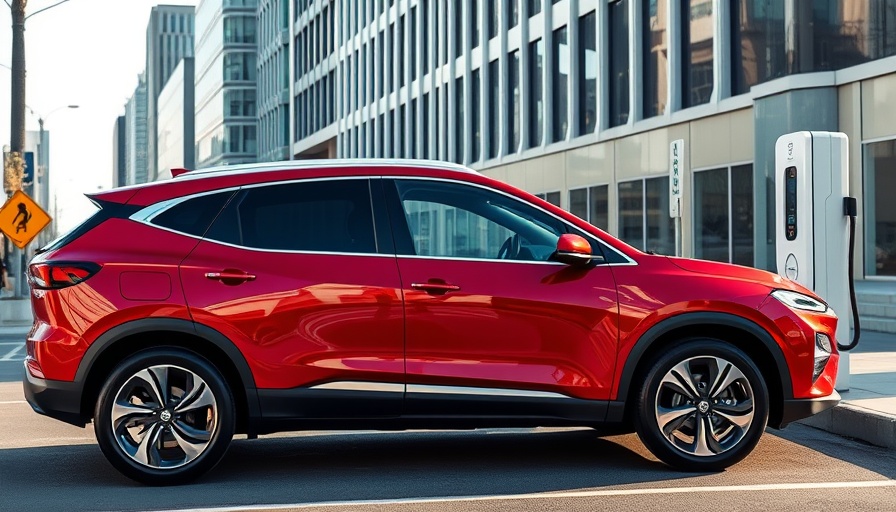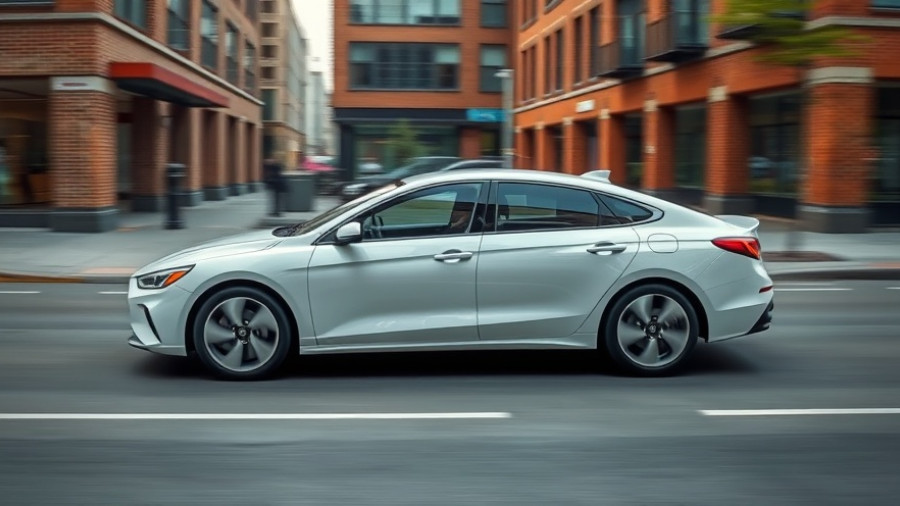
Toyota’s Strategic Pivot to Plug-In Hybrids Amid Slower EV Growth
As we navigate the ever-evolving automotive landscape, Toyota is making headlines with its strategic emphasis on plug-in hybrid electric vehicles (PHEVs). In a market where many manufacturers aggressively committed to electric vehicles (EVs), the Japanese automaker stands out for its diversified approach toward carbon neutrality. Unlike competitors such as Porsche and Mercedes-Benz, who are now experiencing setbacks due to their overwhelming focus on EVs, Toyota is expertly bridging the gap with its hybrid technology.
Understanding the Shift: The EV Growth Rate
While it's true that EV sales are on the rise, the pace of that growth has decelerated compared to the explosive figures seen in previous years. Factors contributing to the slower growth include market saturation, rising vehicle prices, and evolving consumer preferences. Indeed, as luxury brands re-evaluate their electric strategies, the consumer appetite for hybrid solutions – especially those combining the benefits of electric and gas engines – has surged. As Toyota's David Christ noted, a shift toward the plug-in hybrid model offers a balanced solution for customers seeking both efficiency and performance.
Market Potential: Why PHEVs?
With electrified vehicle sales in North America standing at 50.6% for Toyota and Lexus, the company has recognized the increasing demand for flexibility in vehicle performance and fuel efficiency. A mere 2.4% of their sales currently come from PHEVs, but Toyota plans to escalate this figure to 20% by 2030. This ambition reflects not just market trends but also anticipates stringent future regulations on emissions. Plug-in hybrids serve as a practical solution, providing EV-like capabilities without sacrificing the convenience of traditional combustion engines.
Consumer Appeal and Financial Perspectives
From a financial standpoint, Toyota’s PHEVs offer a blend of fuel economy and reduced environmental impact. Producing a range of PHEVs that cater to diverse lifestyles can attract a wider customer base willing to invest in technology that promises both sustainability and performance. As the automotive industry faces increased scrutiny on emissions and sustainability practices, Toyota's investments in PHEVs position it as a responsible player in the market. Consumers benefit from not only a decrease in fuel expenses but also the comforting assurance of extended driving ranges without the range anxiety often associated with fully electric vehicles.
The Case for Conservation: Redefining Hybrid Value
Previously, hybrids garnered mixed opinions regarding their overall effectiveness. However, data now supports their growing prominence. In the past year alone, Toyota and Lexus reported a staggering 39% increase in PHEV sales, reflecting not just consumer acceptance but an evolution in car culture. This growth illustrates that many consumers are looking for vehicles that balance eco-friendliness with practicality, thus valuing Toyota's experience and innovation in hybrid technology.
Looking Ahead: Future Automotive Trends
Future predictions suggest that the automotive market will increasingly lean toward electrified solutions. With market shifts, consumer habits, and impending regulations shaping the industry, companies like Toyota are well-equipped to adapt and thrive. Innovations in battery technology, sustainable materials, and AI-enhanced driving experiences are just a few areas where Toyota is investing, with a strong focus on enhancing the PHEV experience.
Conclusion: The Value of Informed Choices
For car buyers today, understanding the evolution of vehicles like the PHEVs can greatly enhance decision-making. Toyota's commitment to diversifying its lineup serves as a reminder of the importance of informed choices in vehicle purchases. Whether seeking fuel efficiency, car performance analysis, or safety ratings, consumers are encouraged to explore a range of options that best fit their needs. As brands pivot and redefine their goals, staying informed about trends and developments will only enhance the personal ownership experience.
 Add Row
Add Row  Add
Add 




Write A Comment